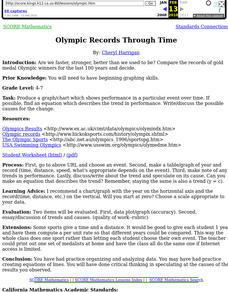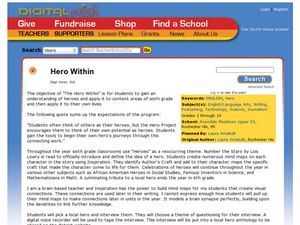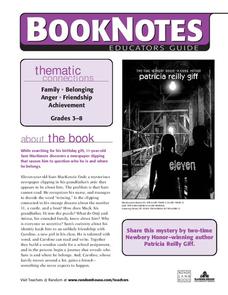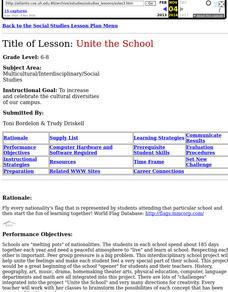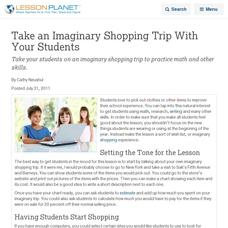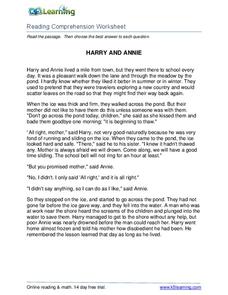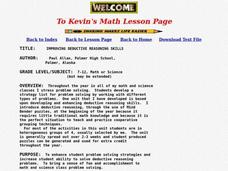Curated OER
Ready for Roots
Fourth graders sort seeds and predict what conditions are needed for them to germinate. They keep the seeds moist, observe and measure their growth and graph the results. As the seeds start to grow students compare and contrast the each...
Curated OER
More Physical Education in 2002 #152
Challenge your class with this problem-solving experience. Learners design a way to add more periods of physical education in the school week without building more gyms. Then, fifth and sixth graders make a list of ideas and choose one....
Yummy Math
Happy 14th B’ak’tun, the start of the next Great Mayan cycle
The ancient Mayans had a complex calendar and number system with a rich history. In fact, the date 12/21/2012 was the center of much controversy as to whether or not it was the end of time. It wasn't the end of time, but...
Curated OER
What's the Cost?
Students consider what things cost 150 years ago and what those costs would be in today's money. They compare costs and services between the 1850s and today to find out if things are cheaper or more expensive today, in inflation-adjusted...
Curated OER
Mini-Economy
Third graders perform jobs in order to sustain their classroom community. After completing a brief overview of how local economies are sustained, they complete job applications for classroom jobs. Students perform their jobs throughout...
Curated OER
Learning Birthdays With Chinese Calendar
Students participate in a visual arts lesson that focuses on patterns used in a macaroni necklace that represents the students' birthdays in the Chinese calendar. They compare the Chinese calendar to the one used in America and look at...
Curated OER
Olympic records through time
Students compare the records of gold medal Olympic winners for the last 100 years and decide if we are faster, stronger than in the past.
Curated OER
Pictorial Portfolio
Students develop a pictorial portfolio of important assignments, projects and activities through their high school years. They use a camera and decide what makes a good photograph. Students organize their photographs into a portfolio...
Curated OER
Save Our Soil
Students explore the need for good farm land and reasons for the disappearance of agricultural areas. They brainstorm environmental friendly decisions and soil conservation. In their community, students explore new land developments...
Curated OER
Spotlight on Students
First graders participate in social skills activities at the beginning of they school year that including graphing work. Each student acts as the "Top Banana" while other students ask them questions about their likes and dislikes. As a...
Curated OER
Hero Within
Students interview a hero. In this heroes lesson, students read Number the Stars to begin a discussion about heroes and then create mind maps on each character. Students pick a local hero and interview them and then write a personal...
Curated OER
Learning the Alphabet
Students study letters and letter sounds and are to be used throughout the year. They predict the letters and sounds and words that are represented by each letter. Letter and sound recognition can be assessed through one to one...
Curated OER
Eleven
Learners read an excerpt from the book Eleven by Patricia Reilly Giff. They answer provided questions for group discussion along themes such as family, belonging, and anger. Assignment suggestions included for math, social studies,...
Curated OER
Stone Fox
Students use the book, Stone Fox, to explore income, capital, saving, taxes, and credit. Stone Fox tells the story of Little Willy, a ten year old who enters a challenging dog-sled race in hopes of winning money to pay the back taxes on...
Curated OER
Unite The School
Learners engage in a school project help unite the feelings and make each student feel a very special part of their school. This project would be a great beginning of the school "opener" for students and their teachers.
Curated OER
Take an Imaginary Shopping Trip With Your Students
Take your students on an imaginary shopping trip to practice math and other skills.
Curated OER
Like Me or Not Like Me?
In this getting acquainted at the beginning of the year worksheet, students fill in the blanks about themselves and another classmate regarding school subjects and friends and then compare them. Students fill in 12 blanks.
Curated OER
A Hidden Beauty
Expose the beautiful mystery of bulbs as young botanists learn all about these fascinating plants. They glean information from a short text before observing actual bulbs (consider an onion), and comparing their findings with predictions....
Scholastic
Marijuana: Perception of Harm vs. Use
Many teenagers don't believe that marijuana is harmful, but if they do, it affects whether they use it or not. Analyze the relationship between what high school seniors believe about marijuana and their tendency to use it with a reading...
K5 Learning
Harry and Annie
Henry and Annie are on thin ice—literally! Read about the siblings' winter walk and the importance of staying safe with a short passage and four follow-up questions.
Discovering Gifts In Middle School
Multiple Intelligences Checklist
Invite your pupils to discover their strengths with a multiple intelligences assessment. They read through several pages of activities and check off the items that apply. Learners then tally up their scores to determine which of the...
K5 Learning
The Blind Men and the Elephant
Sometimes it's necessary to view the whole picture before making a judgment about a small part. Read a short story about five blind men who try to identify an elephant by feeling different parts and coming to their own conclusions....
Hood River County School District
Text Structure: Features and Organization
Teach learners how to interact with both fiction and non-fiction text with a packet of activities and worksheets. After looking over text structure and the difference in text features between different types of writing,...
Curated OER
Improving Deductive Reasoning Skills
Students recognize problems that may be solved using deductive reasoning, and develop aids to help them in solving these problems. They produce their own deductive reasoning puzzles for other students to solve.






